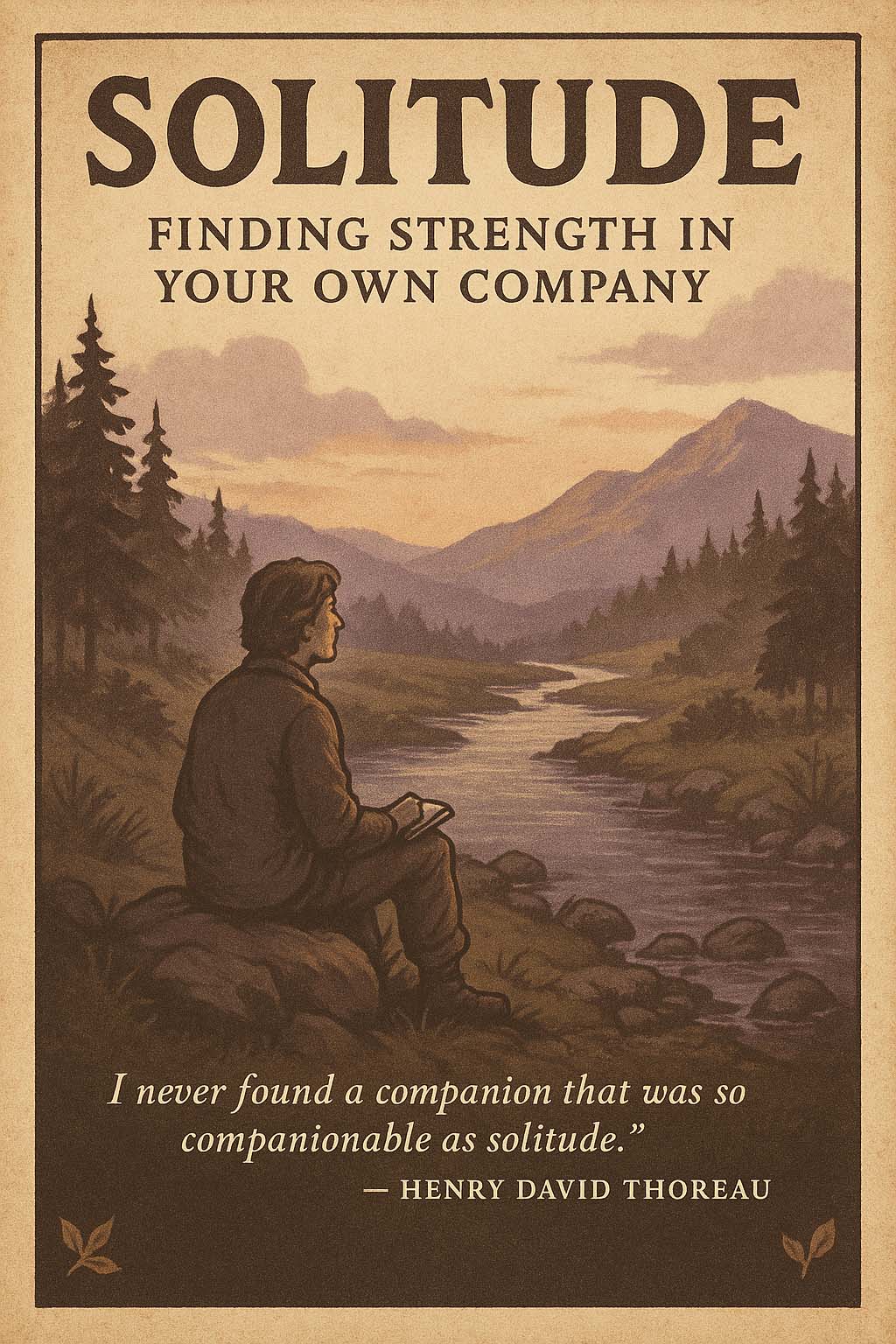
🏞️ SOLITUDE
“I never found a companion that was so companionable as solitude.” – Henry David Thoreau
Solitude is not loneliness—it’s returning to yourself. It’s the practice of being alone without being abandoned, of being quiet without being erased. In the ADHD terrain—where stimulation is constant and validation often comes from others—solitude is a radical act of self-connection.
For ADHDers, solitude can feel uncomfortable. The inner world can be noisy. Emotions, memories, and self-doubt may rise. But solitude, when chosen with intention, can become a clearing. A chance to reset your nervous system, listen to your own voice, and rediscover what matters when no one else is watching.
Living this value means learning to befriend your mind, even when it’s messy. It means trusting that your company is enough. It’s noticing what comes alive when the distractions fall away. It’s realising that solitude isn’t empty—it’s room to breathe.
Solitude also helps balance social ADHD traits like impulsive connection or constant chatter. It invites reflection, regulation, and self-trust. And when it becomes part of your rhythm, solitude doesn’t isolate—it restores.
🧭 The HOPE Trail Map
- Helps or Harms: Am I avoiding solitude out of fear—or seeking it to reconnect?
- Own My Values: I want to be someone who feels whole on my own—not to withdraw, but to recharge.
- People and Pursuits: Who respects my need for solitude without questioning my care? What pursuits help me feel connected to myself?
- Enact and Evaluate: Today, I’ll take a moment of chosen solitude—not to escape, but to listen inwardly.
⚠️ Trail Challenges
- RSD and low self-worth may make solitude feel like rejection.
- Hyperactivity and internal restlessness can make quiet moments uncomfortable.
- Fear of “not doing enough” may prevent restful alone time.
🪧 Trail Markers: Small Steps Toward Solitude
- Take a short walk without your phone or headphones.
- Sit with a cup of tea and do absolutely nothing else for five minutes.
- Journal about how solitude feels—what arises, what settles, what you learn.
🔥 Campfire Questions for Reflection
- What do I learn about myself when I’m alone?
- Where in my day could solitude become a gift instead of a gap?
- How can I make solitude part of my ADHD healing—not a punishment, but a presence?
Solitude is not about being apart from the world—it’s about reconnecting to yourself so you can return to the world whole.
